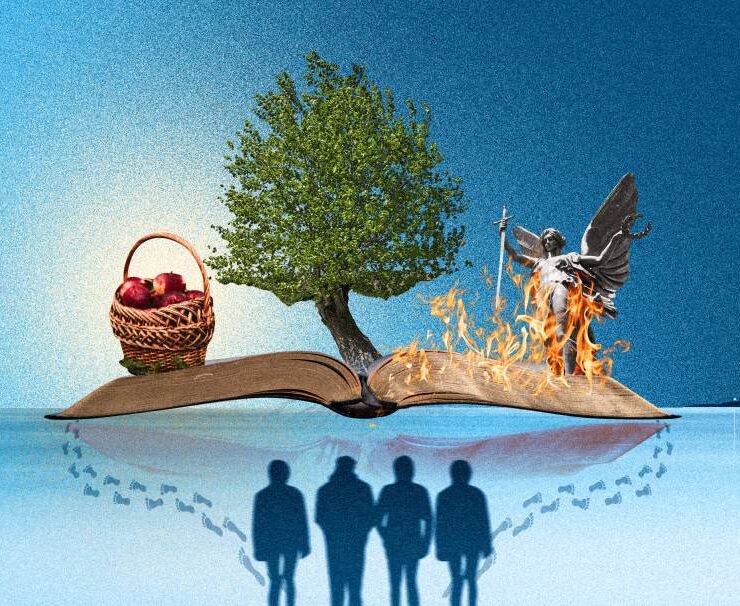Jesus commands us to love God and our neighbor

Nov. 3—31st Sunday in Ordinary Time
Readings: Deuteronomy 6:2-6; Psalm18, R. I love you, Lord, my strength.; Hebrews 7:23-28; Gospel – Mark 12:28b-34
Today’s Gospel gives us the two greatest commandments which have become very familiar to us. But going back to the context of the Lord’s time, we must remember that their two great traditions were the law and the prophets.
One challenge then, and this is our first point for reflection, was how the precepts multiplied because of the people’s “hardness of heart” and the effort to lessen these.
From Moses’ 613 precepts, David came up with 11, which was further reduced: down to size in Isaiah, then Micah had three, Isaiah again down to two, and Habakkuk down to one.
It was a movement toward integration. Going back to the essentials. It began with “I will be your God, you will be my people,” until it “disintegrated into nitty-gritty precepts.
As Parker Palmer shows us, there is a parallel in our life. We come into this world whole but disintegrate the first half of our life until we become aware of this and decide to journey back to wholeness.
This was the movement until we come to this episode in today’s Gospel, our second point for reflection, Jesus combined the two greatest commandments.
Groundbreaking
This combining of the two was very groundbreaking. Until then no one had done it. It was a first for Jesus. This is the second point for reflection.
In combining love of God and love of neighbor, Jesus described his own love as vividly portrayed in his Cross. The vertical beam of the Cross represented the total love and offering to the Father and the horizontal was the love of neighbor.
This became the greatest of all commandments and further validated in John’s Last Supper, “This is my commandment, that you love one another, as I have loved you. Greater love no man has than this, that a man lay down his life for his friends.” (John 15:12-13)
This became the greatest, the essential, the quintessential love of Christianity. The love of the Cross offered in loving obedience.
We must note how Jesus told the scribe when he agreed with Jesus, “You are not far from the kingdom of God.” (From today’s Gospel, Mark 12:28b-34)
The scribe acknowledged love of God and others as “worth more than all burnt offerings and sacrifices.” Aligned with Jesus’ “I desire mercy, not sacrifice.” (Matthew 9: 13)
We live this out as the core of our Christian identity and vocation or mission, the third point for reflection.
St. Augustine put it, “Love God, do what you like.” St. Ignatius of Loyola said it with succinct eloquence, “in all things to love and to serve God—and others.”
St. Paul powerfully expressed (Ephesians 3:17-19): “So that Christ may dwell in your hearts through faith. And I pray that you, being rooted and established in love, may have power, together with all the Lord’s holy people, to grasp how wide and long and high and deep is the love of Christ, and to know this love that surpasses knowledge—that you may be filled to the measure of all the fullness of God.” Amen.





















